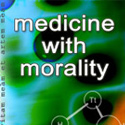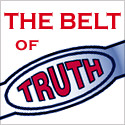The Christian Ethic in Medicine – Loving my Neighbour
The Christian Ethic in Medicine – Loving my Neighbour
I am a doctor. I will use my expertise to heal and to help impartially, regardless of who you are, what you have done, what you do and what you believe.
I do not and will not discriminate.
What I believe does not impede my ability and desire to help.
I may disagree with various aspects of behaviour – particularly involving those that impede or sabotage your own health and that are significant in terms of public health – but that does not impede my ability and desire to help.
You may choose not to be treated by me but that should not and does not mean that I am “not fit” to treat others. That is discriminating against me.
But I will not discriminate against you.
Throughout history it has been the Christian worker that has gone into the epidemic, into the jungle and cannibal tribes, into the refuse pit. Yes, of course there have been others – not necessarily “Christian” – with a deep consciousness of moral truth and eternal values that have done likewise.
How dare you discriminate against my ability to heal by trying to exclude me from my practice of medicine just because you disagree with my belief.
(To the neighbour who objects to me being a doctor simply for what I believe is eternal truth.)
———————————————-
https://blog.canberradeclaration.org.au/2020/02/14/the-heart-of-medicine/
https://treaties.un.org/doc/publication/unts/volume%20999/volume-999-i-14668-english.pdf International Covenant on Civil and Political Rights (ICCPR) Part 2 Article 3
- Each State Party to the present Covenant undertakes:
(a) To ensure that any person whose rights or freedoms as herein recognized are violated shall have an effective remedy, notwithstanding that the violation has been committed by persons acting in an official capacity;
(b) To ensure that any person claiming such a remedy shall have his right thereto determined by competent judicial, administrative or legislative authorities, or by any other competent authority provided for by the legal system of the State, and to develop the possibilities of judicial remedy;
(c) To ensure that the competent authorities shall enforce such remedies when granted.
See also Rodney Stark’s provocative new book For the Glory of God: How Monotheism Led to Reformations, Science, Witch-Hunts, and the End of Slavery in which he argues that, whether we like it or not, people acting for the glory of God have formed our modern culture.






